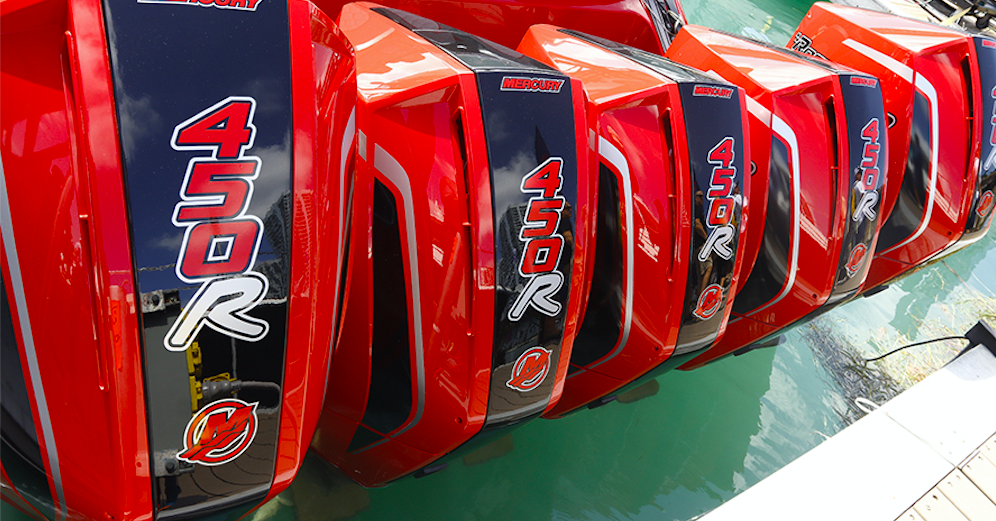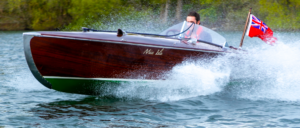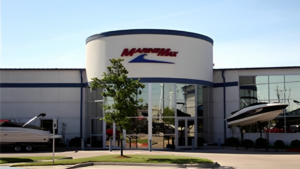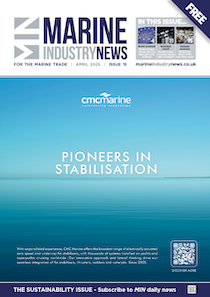In Focus: Mid-range boatbuilders need to stop making excuses

It’s time for boatbuilders to stop offering the ‘customer wants’ lame excuses when it comes to sustainability, argues GMBA’s David Lewin.
Boating is often seen as elitist, and in many cases, we need to admit that it is. It’s expensive in real terms, but the notion that you can have anything you want if you can afford it has to change. Just because you can, doesn’t mean you should, especially when it comes to mid-range motor yachts.
In terms of reducing our carbon footprint, the superyacht industry knows it’s under the spotlight. It is working hard on solutions that will eventually trickle down, but it’s the mid-range where the volume is, and where the worst offenders can be found.
We’ve got electric cars (albeit requiring renewable electricity), hydrogen production, fuel cells and wind and solar farms coming on stream all the time. But that ethos goes out the window when it comes to leisure boating with requests for more horsepower or ridiculous multiple outboard installations (sometimes more drag than power). It’s no longer acceptable to counter every argument with ‘we are only producing what the customer wants’.
In the larger motor yacht sector, where we have an arbitrary ‘superyacht’ regulation and legislation change above 24m, we have companies producing boats with the largest internal volume possible within that overall length, but still required to go fast. As a result, the hull shape is less efficient at the speeds at which it travels for most of the time.
In the vast majority of cases, these boats are moored in locations where they must first leave port, possibly navigate a river and estuary with strict speed controls and then frequently meet a sea state that precludes any chance of high-speed running. Wouldn’t it be better to have a boat with a lesser top speed that used a fraction of the fuel and was comfortable in a seaway?
Plus, the mainstream industry is still using glass-reinforced polyester (GRP) construction without a means to recover it at ‘end of life’ and, in some cases, still using old-fashioned polluting methods of manufacture.
It’s smarter to own an efficient boat rather than an ostentatious fast one. We need to teach this to our customers. That can be helped by marinas using length X beam to charge for berths, thereby encouraging slimmer, more efficient hull designs, Plus, the 24m superyacht rule could change to one of displacement.
We need energy efficiency labelling that rates litres/hour at 5 or 6 knots (the maximum speed in most harbours and rivers) and consumption (and CO2 emissions) at the design cruising speed, and rate the ‘hotel’ side of the craft for power usage, thermal insulation, solar input and in the case of sailing boats, hydro generation.
There are plenty of ways to save energy for those prepared to go a little slower. We might even see the resurgence of the motor-sailer, which offers enough power to motor to windward but with sails to augment efficiency at all other points of sail.
This is not about decrying the UK’s world-beating motor yacht industry; it’s about adapting to a more frugal (in terms of fuel and emissions) and more socially responsible future.
That label of elitism should be seen as a warning sign. It won’t go unnoticed by a future populist government as an easy target for some extra revenue or legislation.











Spot on analysis of what the future of the nautical business should be. I think I am reading a forgotten quartet of “The Prophecies” of Nostradamus. Everybody has a day-to-day example of the automobile industry, from where we can apply many practices and client reaction experiences. 5.000cc car engines are still fabricated and there is a market for them, but most brands are gone to under 2.000cc with very high efficiency and still allow the 150km/h most countries set as their top speed. I do agree with you, David. Now it is a matter of education of users, builders and government.
Almost nobody I speak to is happy about mankind’s husbandry of the planet. It’s interesting that when you peel back the lid, there are no political or economic solutions to the humans-trash-the-planet conflict. Policy ultimately reflects what is electable and economics is always about what people will buy. The only way forward is to create impact at an individual level to change beliefs and hence choices. Publishing statistics clearly doesn’t work. The single most effective way to accomplish change is through intentional storytelling – the most powerful way to change the world!